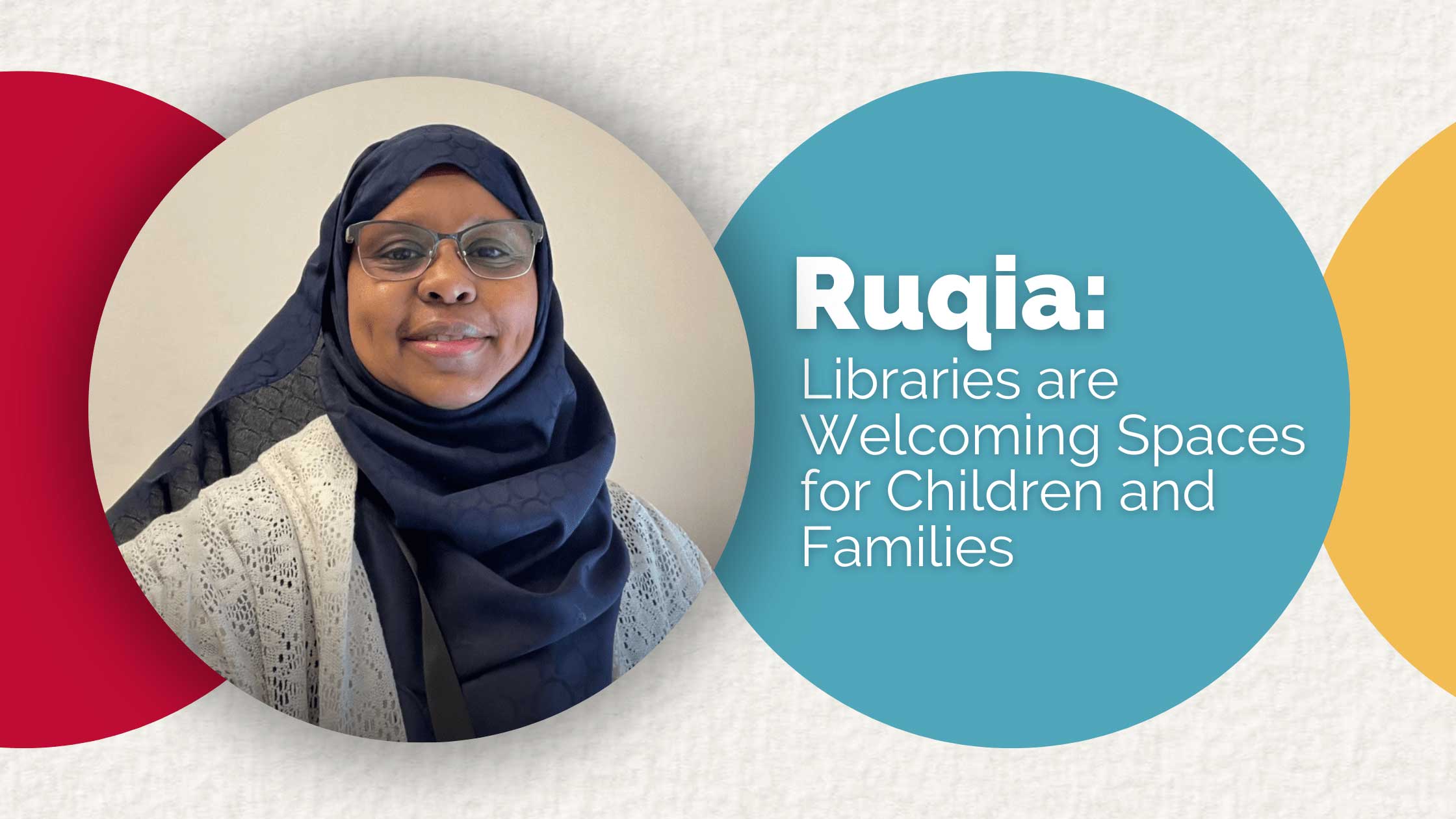
If you've ever had the pleasure of meeting Ruqia at one of SPPL's library locations, you probably know she is an enthusiastic champion of libraries. Ruqia has been working as a Community Library Manager at Arlington Hills Library for the last two years, where she has played a significant role in transforming the children's area into a vibrant space to play and learn. She recently moved to the Dayton’s Bluff branch where she will continue to bring her passion for creating welcoming programs and culturally relevant spaces. We sat down with Ruqia to learn more about what influenced her to become such a fierce library advocate, especially for children and families:
What brought you to libraries?
A few weeks after arriving in Paterson, New Jersey, with my husband and daughter, I saw the Paterson Public Library when we were on our way to the resettlement agency office. I kept thinking of the word "public." I came back by bus to check out the library the next day. I went inside and was surprised to see so many books, and I was hungry to read. I asked the librarian how many books I could take, and she replied, "As much as you can carry!" While looking around, a person called me "Sister!" I remember her name was Akila. She asked if I was new to the library, and I replied, "Yes, I recently came to the country." She took me to her office. I think she was an adult education teacher and introduced me to other staff, and they welcomed me and my daughter. Akila gave me all the resources a new immigrant could use, including Halal groceries, and offered to take me to the local Mosque over the weekend. The public library connected me to resources and my faith community.
What excites you about working at libraries?
I believe libraries are the bedrock of democracy, and I experience American values like free access to information at libraries. No matter what chaos and crisis is going on, libraries are a safe space for children and families. Youth can come and hang out, read books, or discover their career options at the library.
Another thing that excites me about working at the library is that I remember those moments and milestones that enabled me to connect with my community as a new immigrant and those moments in Minneapolis when a supervisor, Bernie, in the Central Library, welcomed my kids and me to the library and empowered me to work there. She included me in the library community. Good experiences, and the fantastic individuals I met, instilled in me a love of libraries. I want to create a similar and even better experience for everyone who enters the library!
How do you think libraries improve communities?
I like to explain how libraries help their communities through the ecological systems theory developed by Urie Bronfenbrenner, a psychologist who studied human development. His theory states that there are five systems that influence the development of a child, from the microsystem, which is about our close relationships and the people we interact with daily, to the chronosystem, which is about time and how changes in our life impact us. From relationships to life changes, libraries influence lives and impact the development of the young people by providing space, programs, and resources to create and connect. Unlike most other public organizations, the library is a platform that continues to serve its communities even when its doors are closed. Patrons can use their library cards to access eBooks and other educational programs. It offers one-on-one homework and technology help and provides unique services such as hot spots and curbside pick-up.
How do you see libraries growing to meet community needs in the next 10 years?
I see libraries growing to meet the community's needs in the next ten years by closing the gap of the digital education divide. Our society keeps focusing on providing more digital devices, and libraries are already at the forefront of these efforts; however, the community needs more education on using technology. Artificial Intelligence (AI) is here, creating fear and excitement simultaneously. High-tech folks quickly advance their teaching and learning using AI, while the rest struggling to navigate online modules will be left behind.
In the next ten years, libraries will focus on bridging the gap in technology education so everyone who has access to devices in our library buildings, schools, or at home will use technology wisely and advance their education.
Curious to know if Ruqia is team physical book or e-book or what her favorite day of the week at the library is? Check out her recent cameo on Out of the Box!


Add a comment to: Library Stories: Ruqia